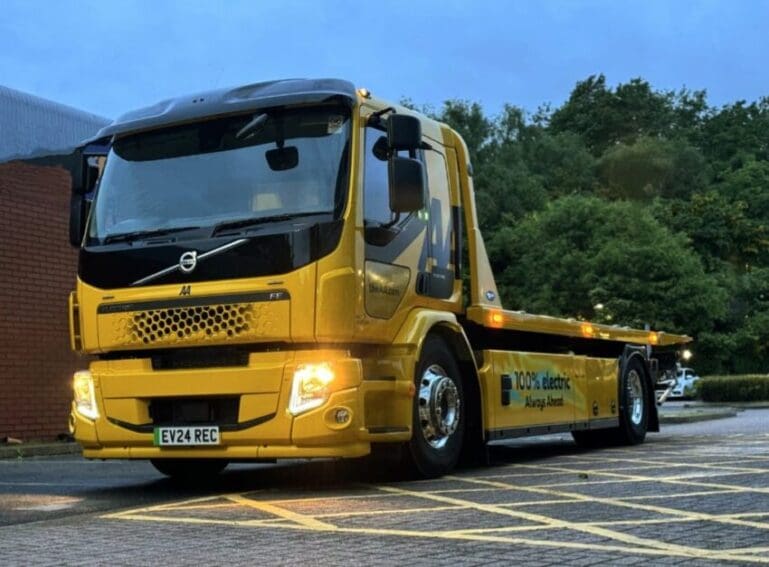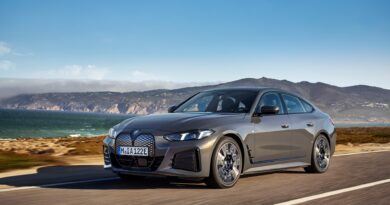
AA launches UK’s first fully electric recovery vehicles
The AA has become the UK’s first breakdown service to add all-electric recovery trucks to its fleet.
The roadside assistance specialist has introduced three different EVs as part of trials to determine the best approach to decarbonising its fleet.
The organisation unveiled the three vehicles – a Volvo FE Slidebed; an Iveco eDaily Powerload; and an Iveco eDaily crew van equipped with a compact recovery trailer (CRT) – fleet decarbonisation event at its Oldbury Operations Centre.
Speaking at the event, AA president Edmund King OBE said: “Introducing these exciting new concept vehicles to our fleet is an important step towards our goal of becoming a net zero company by 2035.
“As a market-leading organisation, we are committed to showing the way as the country transitions to a zero emissions future.”
The AA has a fleet of more than 3,000 vehicles, ranging from small vans to large recovery trucks, and is examining various routes to decarbonising its line-up. Due to the complex vehicle requirements of its business, the AA is taking a “test and scale” approach with structured tests of alternative fuel vehicles in real-life settings.
The largest of the new vehicles is an electric version of the Volvo FE 19T equipped with a Boniface VLA (very low angle) slidebed. The vehicle can carry 6,000kg on its recovery bed and up to 2,000kg on its second car lift. It is likely to be used to recover vehicles in and around urban low emissions zones and features a range of 170 miles and 150kW charging that will replenish its batteries in less than two and a half hours.
The other two trucks are from Iveco. The eDaily Powerload features a remote loading system and 3,000kg payload, with a range of around 100 miles and 80kW rapid charging. The eDaily CRT van can carry up to six passengers and cover up to 160 miles between charges. It features a heavy-duty recovery trailer capable of carrying vehicles of up to 3,250kg and of carrying motorcycles, EVs and 4x4s.
Duncan Webb, AA’s head of fleet, added: “We’re excited to introduce these groundbreaking vehicles to our ‘test and scale’ approach to fleet decarbonisation.
“All the vehicles are subject to structured tests in real-life settings and include both hydrogenated vegetable oil (HVO), electric in the highest emission intensity HGVs and across our wide range of van applications. These vehicles form the foundation of learning for scale deployment in the near and long-term future for our customers.”





